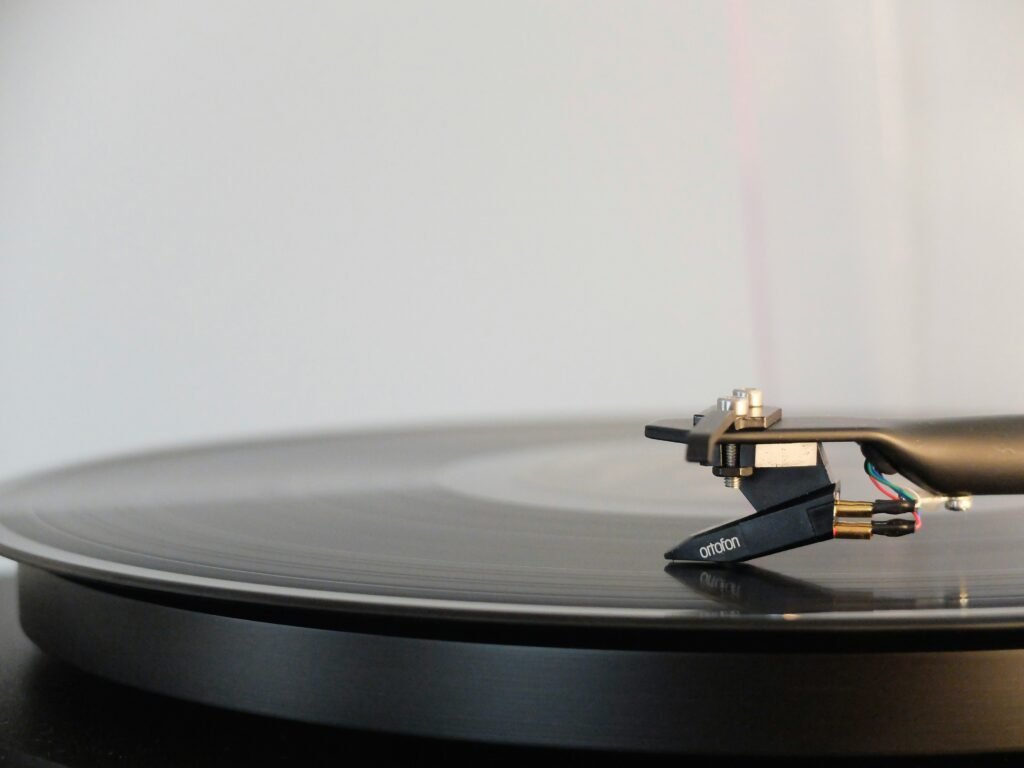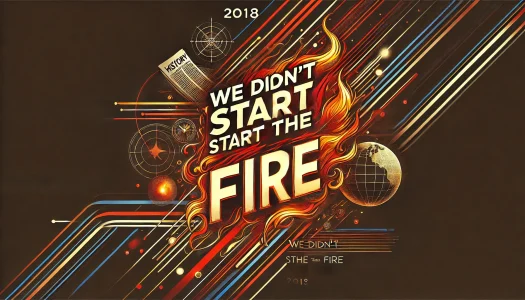What do Harry Truman, the Korean War, and Elvis Presley have in common? They all march through the lyrics of Billy Joel’s ‘We Didn’t Start the Fire,’ a song that captures the relentless pace of 20th-century history in a dizzying, four-minute sprint.
Released in 1989, ‘We Didn’t Start the Fire’ became an instant cultural phenomenon, resonating with listeners across generations. The song’s machine-gun delivery of over 100 historical references—from political crises to pop culture icons—created a lyrical mosaic that both entertained and educated. With its rapid-fire chronology and unforgettable chorus, the track quickly solidified its place as an anthem that not only defined the end of the 1980s but also offered a retrospective on the entire post-war era.
The Genesis of the Song
Background on Billy Joel
By the late 1980s, Billy Joel was more than just a rock star—he was a cultural icon. With a career spanning over two decades, Joel had already released a string of chart-topping hits, from the introspective “Piano Man” to the anthemic “Uptown Girl.” His ability to craft songs that resonated with a broad audience, blending storytelling with catchy melodies, had cemented his status as one of the most successful singer-songwriters of his generation. As the 1980s drew to a close, Joel, then in his late 30s, found himself reflecting on the rapidly changing world around him—a reflection that would soon give birth to one of his most ambitious projects.
Inspiration for the Song
The spark for “We Didn’t Start the Fire” was ignited during a chance conversation with a young friend who lamented how difficult life had become in the 1980s. Joel, born in 1949, was quick to point out that every generation faces its own challenges, and the world had always been full of turmoil and change. To prove his point, he began listing significant events and cultural shifts he had witnessed throughout his life. This offhand list of historical references soon evolved into the foundation of a song that would chronicle four decades of history.
Joel later admitted that the idea of turning this impromptu history lesson into a song fascinated him. He was struck by the notion of capturing the relentless march of history—not as a series of isolated incidents, but as an interconnected flow of events that shaped the modern world. The challenge, however, was how to condense so many pivotal moments into a single, cohesive piece of music.
Songwriting Process
Writing “We Didn’t Start the Fire” was unlike any other song Joel had composed. Instead of a traditional narrative or emotional exploration, the song became a rapid-fire litany of names, places, and events—a stream-of-consciousness list set to a driving beat. Joel meticulously researched and organized his memories, beginning with his birth year in 1949 and moving forward chronologically. The lyrics unfolded as a timeline of significant global and cultural events, from the post-war era through to the late 1980s.
The rhythm of the song mirrored the frenetic pace of history itself, with Joel matching the tempo of the music to the cadence of the words. Each verse represented a decade, and the relentless delivery of the lyrics conveyed the sense of history hurtling forward, with each new event building upon the last. The refrain, “We didn’t start the fire, it was always burning, since the world’s been turning,” served as both a reflection and a resignation—a reminder that the chaos and upheaval of the world were not new, but rather an ongoing part of the human experience.
Decoding the Lyrics

Lyric Breakdown
Billy Joel’s “We Didn’t Start the Fire” begins with a burst of names and events from 1949, the year of his birth, and races through four decades of history, ending in 1989. Each verse is packed with rapid-fire references, chronologically cataloging moments that defined the second half of the 20th century. The song opens with the names of significant figures like Harry Truman, Doris Day, and Joe DiMaggio, before moving on to events such as the hydrogen bomb tests and the Korean War. As the lyrics progress, the tempo of the song reflects the increasing complexity and interconnectedness of global events, culminating in the chaotic landscape of the 1980s.
Joel organizes the song not by decade, but by the flow of history as he experienced it. The first verse, for instance, focuses on the late 1940s and early 1950s, a time marked by post-war recovery and the rise of Cold War tensions. The subsequent verses shift into the 1960s and 1970s, touching on cultural revolutions, technological advancements, and the political upheavals that defined those years. By the time the song reaches the 1980s, it becomes a whirlwind of references, from the Iran-Contra affair to the AIDS epidemic, reflecting a world that seems to be spinning faster and faster.
Historical Context
Each reference in “We Didn’t Start the Fire” is a snapshot of a moment in time, capturing the essence of the era in which it occurred. For example, the line “Harry Truman, Doris Day” juxtaposes the post-war president who oversaw the beginning of the Cold War with one of the most beloved actresses of the era, symbolizing the contrasting worlds of politics and entertainment that shaped the 1950s. “Red China” refers to the 1949 establishment of the People’s Republic of China under Communist rule, a major geopolitical shift that would have long-lasting implications throughout the Cold War.
In the 1960s, Joel references “JFK, blown away,” alluding to the assassination of President John F. Kennedy in 1963, a pivotal event that left a lasting impact on American society. “Beatlemania” captures the explosive popularity of The Beatles, whose music revolutionized pop culture across the globe. The 1970s bring lines like “Watergate,” referring to the political scandal that led to President Richard Nixon’s resignation, and “Punk rock,” which encapsulates the rise of a rebellious and raw musical movement that challenged the norms of the mainstream.
The song’s final verse, which spans the 1980s, includes “Hypodermics on the shore,” a reference to the environmental crises and public health scares of the time, such as the HIV/AIDS epidemic. “Rock and roller, cola wars” points to the commercialization and competition within the music industry and consumer culture, epitomized by the intense marketing battles between Coca-Cola and Pepsi.
Themes and Messages
At its core, “We Didn’t Start the Fire” is a meditation on the relentless and sometimes overwhelming march of history. Joel’s rapid-fire delivery and the sheer density of the lyrics suggest that history is a continuous, unstoppable force—one that shapes our lives whether we are aware of it or not. The refrain, “We didn’t start the fire, it was always burning, since the world’s been turning,” underscores this theme, implying that the events Joel references are part of a much larger, ongoing narrative that began long before any of us were born and will continue long after we are gone.
Joel’s song also speaks to the idea of collective responsibility and the interconnectedness of generations. While the “fire” represents the conflicts, challenges, and crises that have plagued humanity, the song’s message is clear: each generation inherits the problems of the previous one, but none can claim to have started them. Instead, we are all part of the continuum, navigating a world shaped by the decisions and events of those who came before us.
Reception and Impact

Chart Performance
“We Didn’t Start the Fire” was an immediate commercial success, catapulting Billy Joel back to the top of the charts. Released in September 1989 as the lead single from his album Storm Front, the song quickly resonated with audiences, who were captivated by its fast-paced, history-packed lyrics. By December of that year, the track had climbed to No. 1 on the Billboard Hot 100, marking Joel’s third and final chart-topping hit in the United States.
The song’s success extended beyond the U.S., reaching the top 10 in several other countries, including Canada, Australia, and the UK. Its popularity was bolstered by a memorable music video that visually reinforced the song’s rapid-fire litany of historical references, further embedding the track in the public consciousness.
Critical Reception
The critical response to “We Didn’t Start the Fire” was mixed, reflecting the song’s unconventional structure and ambitious scope. Some critics praised Joel for his bold attempt to encapsulate four decades of history in a single song, applauding its educational value and the cleverness of its lyrical composition. They saw the track as a powerful commentary on the overwhelming nature of modern history, delivered in a way that was both accessible and thought-provoking.
However, not all reviews were favorable. Some critics dismissed the song as a novelty, arguing that its laundry list of historical references lacked depth and failed to offer any real insight into the events it described. They critiqued the song’s lack of a traditional melody and its repetitive structure, with some even labeling it as overly simplistic. Despite this, the public reception was overwhelmingly positive, with listeners embracing the song’s catchy rhythm and enjoying the challenge of decoding its many references.
Cultural Impact
Over time, “We Didn’t Start the Fire” has transcended its initial reception to become a cultural touchstone. The song’s unique approach to storytelling has made it a popular reference point in discussions about history and pop culture. Its dense array of historical references has made it a valuable tool in educational settings, where teachers often use the song to engage students with 20th-century history in an accessible and entertaining way. The song’s lyrics have been dissected in classrooms, with each reference serving as a starting point for deeper exploration into the events that shaped the modern world.
Beyond education, the song has also maintained a strong presence in pop culture. It has been parodied and referenced in various forms of media, from television shows to internet memes, often adapted to reflect contemporary events. The enduring relevance of “We Didn’t Start the Fire” lies in its ability to encapsulate the sense of living through a tumultuous and ever-changing world—a sentiment that continues to resonate with each new generation.
Closing Thoughts
From its inception to its enduring legacy, “We Didn’t Start the Fire” stands as both a history lesson and a cultural milestone. Billy Joel’s ambitious attempt to capture four decades of global events and cultural shifts in a single song resulted in a track that resonated with audiences worldwide. The song’s commercial success and its place at the top of the charts showcased its immediate impact, while its mixed critical reception highlighted the challenge of balancing artistic expression with such a densely packed narrative.
Over the years, “We Didn’t Start the Fire” has proven its lasting relevance, evolving from a pop hit into a tool for education and a touchstone in popular culture. Its unique structure and rapid-fire delivery continue to spark discussions, inviting listeners to reflect on the complexities of history and the way in which events, both big and small, shape our collective experience.
